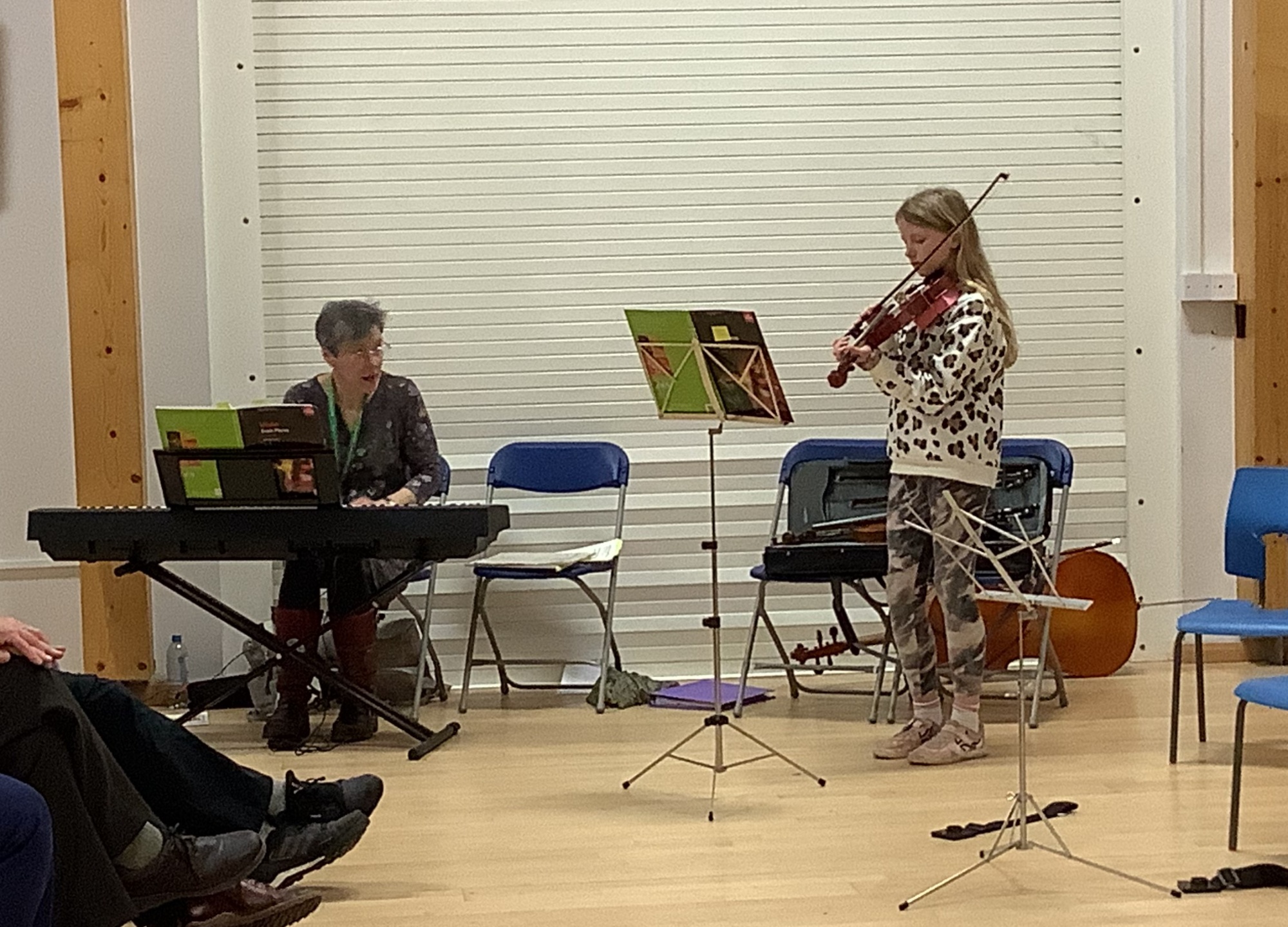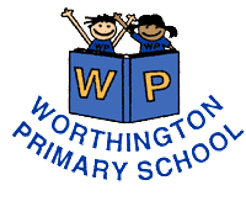Music
Worthington Primary School Music Curriculum Statement
Music Curriculum - Intent
At Worthington Primary School, we aim for every child to have access to high-quality, practical, and engaging musical experiences. We want all children to develop the self-confidence, skills, knowledge and understanding to develop a lifelong love of music, whilst also providing a secure foundation that enables them to take music further should they wish to.
As musicians, children will understand and explore how music is created, produced and communicated through the interrelated dimensions: pitch, duration, dynamics, tempo, timbre and texture. Pupils will develop the musical skills of singing, playing tuned and untuned instruments, improvising and composing music, and listening and responding to music. They will develop an understanding of the history and cultural context of the music they listen to and learn how music can be written down. Through music, our curriculum helps children develop transferable skills such as team-working, leadership, creative thinking, problem-solving, decision-making and presentation and performance skills. These skills are vital to children’s development as learners and have a wider application in their general lives outside and beyond school.
Music Curriculum – Implementation
At Worthington Primary School, we follow the Kapow Music scheme from nursery to Year 6. It takes a holistic approach to music, in which the individual strands are woven together – performing, listening, composing, the history of music and the interrelated dimensions of music.
Kapow follows a spiral curriculum whereby previous skills and knowledge are returned to and built upon. Children progress in terms of tackling complex tasks and practising more simple tasks, as well as developing understanding and knowledge of the history of music, staff and other musical notation, along with the interrelated dimensions of music. Each lesson is designed to encourage active participation from pupils in musical activities drawn from a range of styles and traditions. Lessons incorporate a range of teaching strategies from independent tasks, paired and group work as well as improvisation and teacher-led performances. Lessons are ‘hands-on’ and incorporate movement and dance elements, as well as making cross-curricular links with other areas of learning.
The Music offering is further enhanced and supported by various other elements. Each month, we follow a Musician of the Month. The children are exposed to a range of musicians and explore their music and composition through Collective Worship and singing assemblies. Each year group is expected to participate in a performance so that children always have the opportunity to perform for an audience.
Extra-curricular opportunities are available at Worthington through individual or small group instrumental tuition of a range of instruments including violin, cello and guitar. Trafford Music Service play a key part in meeting demand for other musical instruments. Further to this, there is a KS2 choir which is free at the point of entry – opportunities are always sought to perform at professional venues where possible.
Music Curriculum – Impact
The impact of the music curriculum at Worthington is constantly monitored through both formative and summative assessment. Pupils are assessed against the learning objectives and at the end of each Kapow unit there is often a performance element where teachers can make a summative assessment of pupils’ learning. Our music curriculum is evidenced through the use of book creator. Children at Worthington should leave the school equipped with a range of skills to enable them to succeed in their secondary education and to be able to enjoy and appreciate music throughout their lives.
The expected impact of music curriculum offering at Worthington is that children will:
- Be confident performers, composers and listeners and be able to express themselves musically at and beyond school.
- Show an appreciation and respect for a wide range of musical styles from and around the world. They will understand how music is influenced by the wider cultural, social and historical contexts in which it is developed.
- Understand the ways in which music can be written down to support performing and composing activities.
- Demonstrate and articulate an enthusiasm for music and be able to identify their own personal music preferences.
- Meet the end of Early Years expectations for the Early Years Curriculum.
- Meet the end of key stage expectations outlined in the national curriculum for Music.
- Have had the opportunity to perform for a range of different audiences including their peers, parents/carers, and wider audiences across different venues such as school and professional venues where possible.

The government published (June 2022) the power of music to change lives: a national plan for music education. It sets out a vision to enable all children and young people to:
- learn to sing, play an instrument and create music together
- have the opportunity to progress their musical interests and talents, including professionally
Every child should receive a great music education. Learning about music and having the opportunity to play musical instruments and make music together is a vital part of a rich and rounded education. Music plays a key role in brain development. It helps to develop language, motor skills, emotional intelligence and collaboration skills.
While the value of learning, enjoying and making music is undeniable, so is the value of music to our economy. Pre-pandemic, the music industry generated £2.9 billion in exports and supported 200,000 jobs. Music education fuels the talent pipeline into this world-leading industry.
This document sets out:
- what the national plan for music education means for children and young people
- where parents and young people can go for more support
For more information - https://www.gov.uk/government/publications/music-education-information-for-parents-and-young-people/what-the-national-plan-for-music-education-means-for-children-and-young-people
